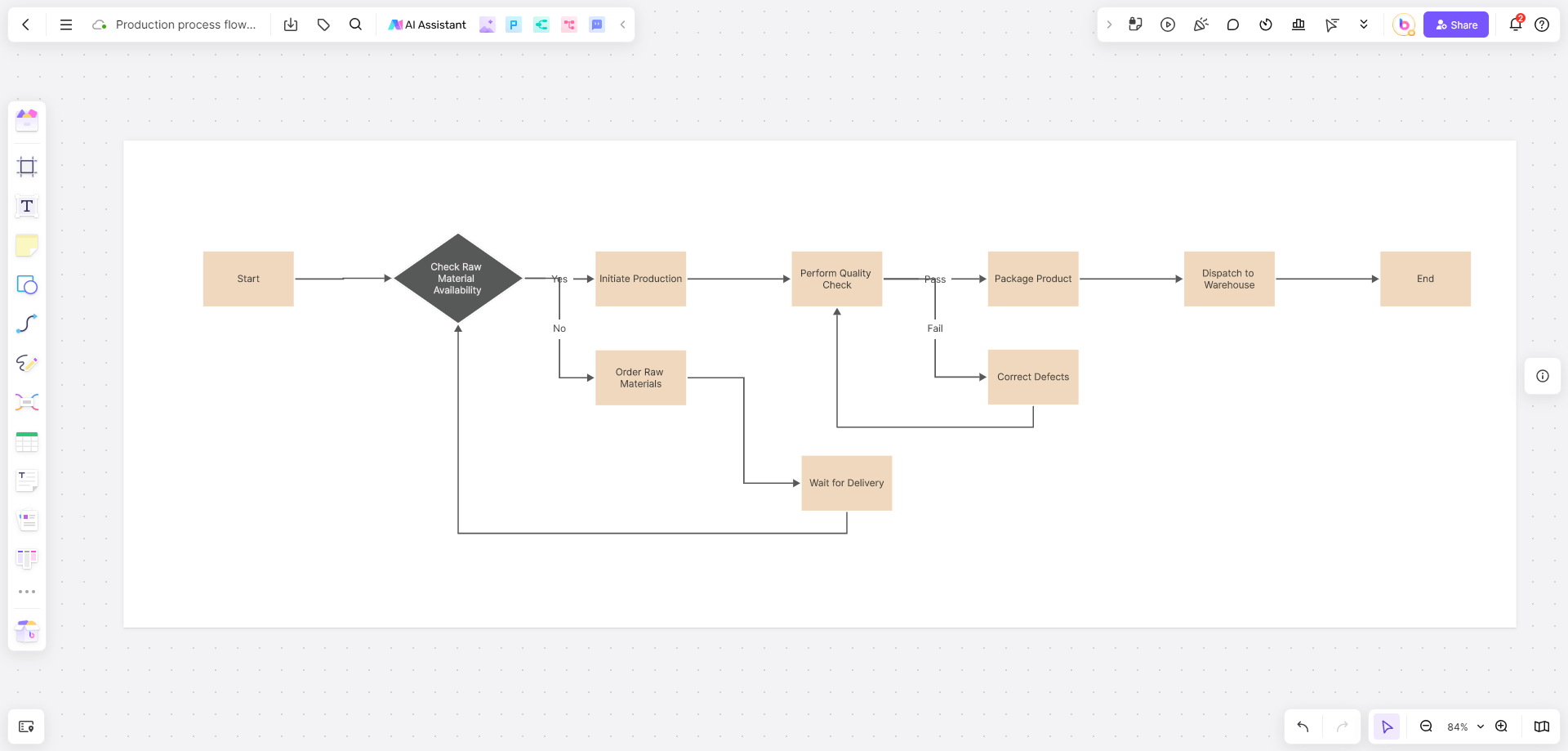To stay ahead, businesses need a comprehensive framework that addresses all aspects of marketing. Enter the 7 Ps of Marketing—a time-tested concept that provides a holistic approach to crafting and executing effective marketing strategies. But what are the 7 Ps of marketing, and how can they help your business thrive in the digital age? This guide will explore each element of the 7 Ps, explain their roles in shaping a winning marketing strategy, and show you how to adapt these principles using modern digital tools. Whether you're a seasoned marketer or just starting, this article will provide valuable insights to elevate your marketing efforts and drive business success.
Understanding the Fundamentals of the 7 Ps

Marketing is an ever-evolving field that requires constant adaptation and innovation. To build a successful marketing strategy, it's essential to understand the fundamental concepts that drive the industry. One such framework is the 7 Ps of marketing. But what are the 7 Ps of marketing? This concept expands the traditional marketing mix to include additional elements crucial for contemporary marketing practices.
The 7 Ps of marketing are a set of seven key elements that businesses must consider to ensure their marketing strategies are effective. These elements are Product, Price, Place, Promotion, People, Process, and Physical Evidence. Each component plays a vital role in creating a holistic marketing strategy that can adapt to changing market conditions and consumer preferences.
What Makes Up the 7 Ps of Marketing?
Understanding what are the 7 Ps of marketing and how they interact with each other is critical for crafting a comprehensive marketing strategy. Each of the 7 Ps of marketing influences the others, and the interplay between them can significantly impact a business's overall success. By integrating these elements into your strategy, you can create a more robust, adaptable, and effective marketing plan.
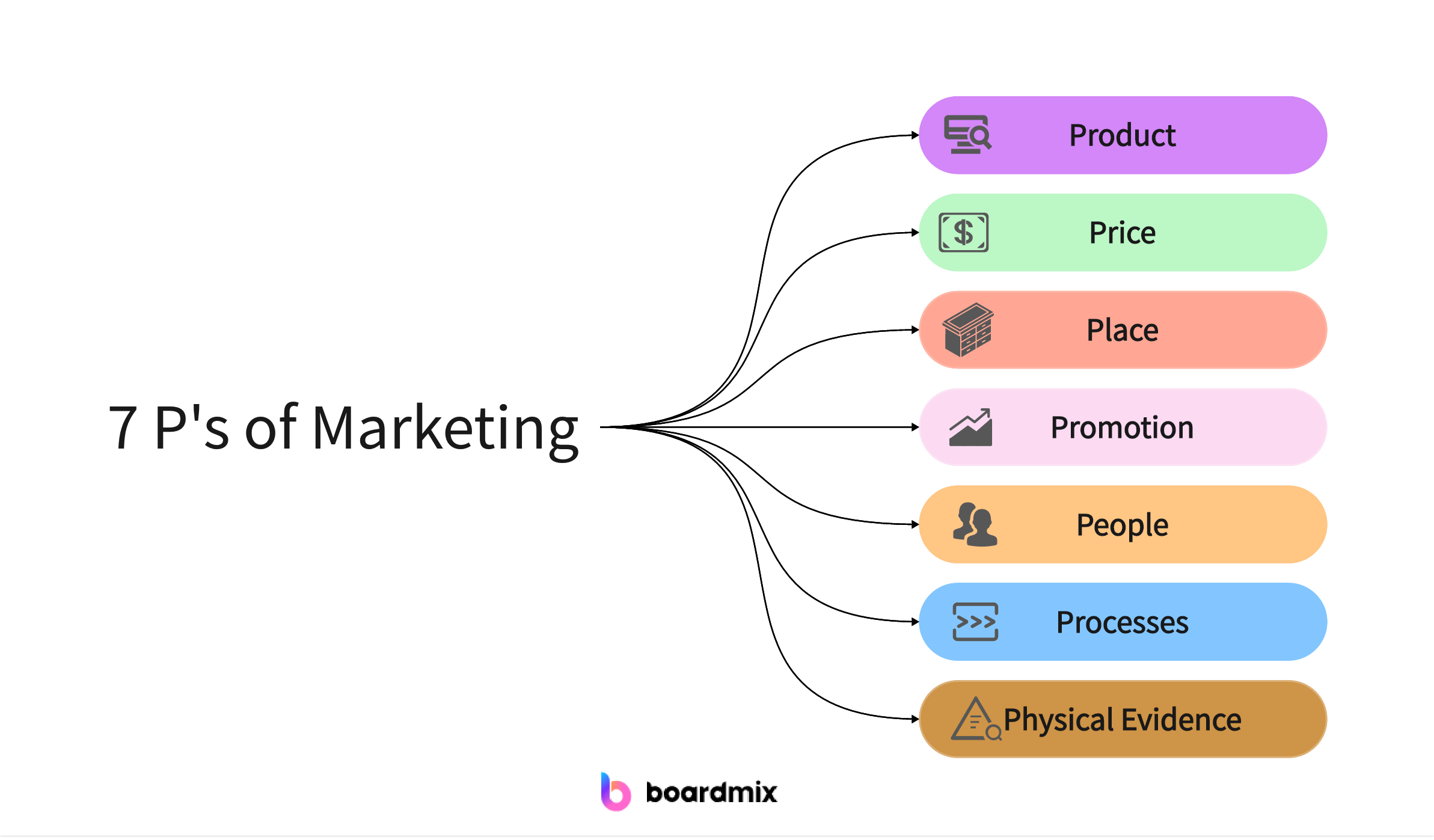
Product
The product is the cornerstone of any marketing strategy. It refers to the goods or services that a business offers to its customers. When considering the product aspect of the 7 Ps, businesses should focus on quality, features, branding, and how the product meets the needs and desires of their target market.
Price
Price is the amount customers are willing to pay for a product or service. It is a critical component of the 7 P of marketing because it directly affects the company's profitability and competitive positioning. Businesses need to consider pricing strategies, discounts, and payment terms to attract and retain customers.
Place
Place refers to the distribution channels used to deliver the product to customers. It involves selecting the most effective locations, whether physical or digital, to reach the target audience. Understanding the role of place in the 7 Ps of marketing helps businesses ensure their products are available where and when customers need them.
Promotion
Promotion encompasses all the activities undertaken to make the product known to potential customers. This includes advertising, public relations, sales promotions, and digital marketing. An effective promotion strategy is essential for building brand awareness and driving sales.
People
People are the employees and staff who interact with customers and represent the company. This element of the 7 Ps highlights the importance of hiring, training, and retaining skilled personnel who can provide excellent customer service and enhance the overall customer experience.
Process
Process refers to the procedures and systems that deliver the product or service to the customer. Efficient processes ensure that the business operates smoothly and delivers consistent quality. In the context of the 7 P of marketing, process optimization can lead to increased customer satisfaction and loyalty.
Physical Evidence
Physical evidence is the tangible proof that a service was delivered. This can include packaging, branding, and the physical environment in which the service is provided. In the digital age, physical evidence also extends to online reviews and testimonials, which can influence potential customers' perceptions and decisions.
The Role of the 7 Ps in Shaping a Winning Marketing Strategy
For marketers, understanding what the 7Ps of marketing are and understanding how these elements interact and complement each other is essential for them to conduct successful marketing campaigns. Each P affects other P, creating a dynamic and interrelated framework. For example, the price of a product can affect its perceived value (product), the channel (location) through which it is distributed, and the promotional strategy (promotion) used to market it.
Integration and collaboration
The key to a successful marketing strategy lies in the integration and collaboration of 7Ps. Companies must ensure that all elements are consistent with their overall goals and objectives. For example, a high-quality product (product) should be priced (price) accordingly and promoted (promotion) through appropriate channels. In addition, customer experience (people) and delivery efficiency (processes) must strengthen the value proposition of the product.
Adapt to market changes
The dynamic nature of 7Ps marketing enables companies to adapt to changing market conditions. By regularly evaluating and adjusting each element, the company can stay ahead of competitors and meet changing customer needs. For example, if a new competitor enters the market with a lower-priced product, a company may need to adjust its pricing strategy or strengthen its promotional efforts to maintain its market position.
How to Adapt the 7 Ps of Marketing to the Digital Age
The digital age has transformed the way businesses approach marketing. To remain competitive, companies must adapt the 7 Ps of marketing to leverage digital tools and technologies. Here, we introduce ten software solutions that can help businesses optimize each element of the 7 Ps in the digital era.
1. Boardmix
Boardmix is an innovative digital whiteboard tool that enhances collaboration and creativity, making it an indispensable asset for modern marketing teams. It allows teams to brainstorm, plan and execute marketing strategies in real time, regardless of their physical location. By integrating Boardmix into your marketing processes, you can streamline communication, visualize complex ideas, and ensure that all team members are aligned with your marketing goals. Here's how Boardmix can help marketers effectively address the 7 problems of marketing:.
Product

Develop and improve products: Boardmix provides an online platform for real-time interaction and communication where teams can collaborate on product development ideas.
Pricing
Developing Pricing Models: Using the Boardmix whiteboard feature to develop pricing plans, marketing teams can intuitively create and analyze different pricing strategies.
Place
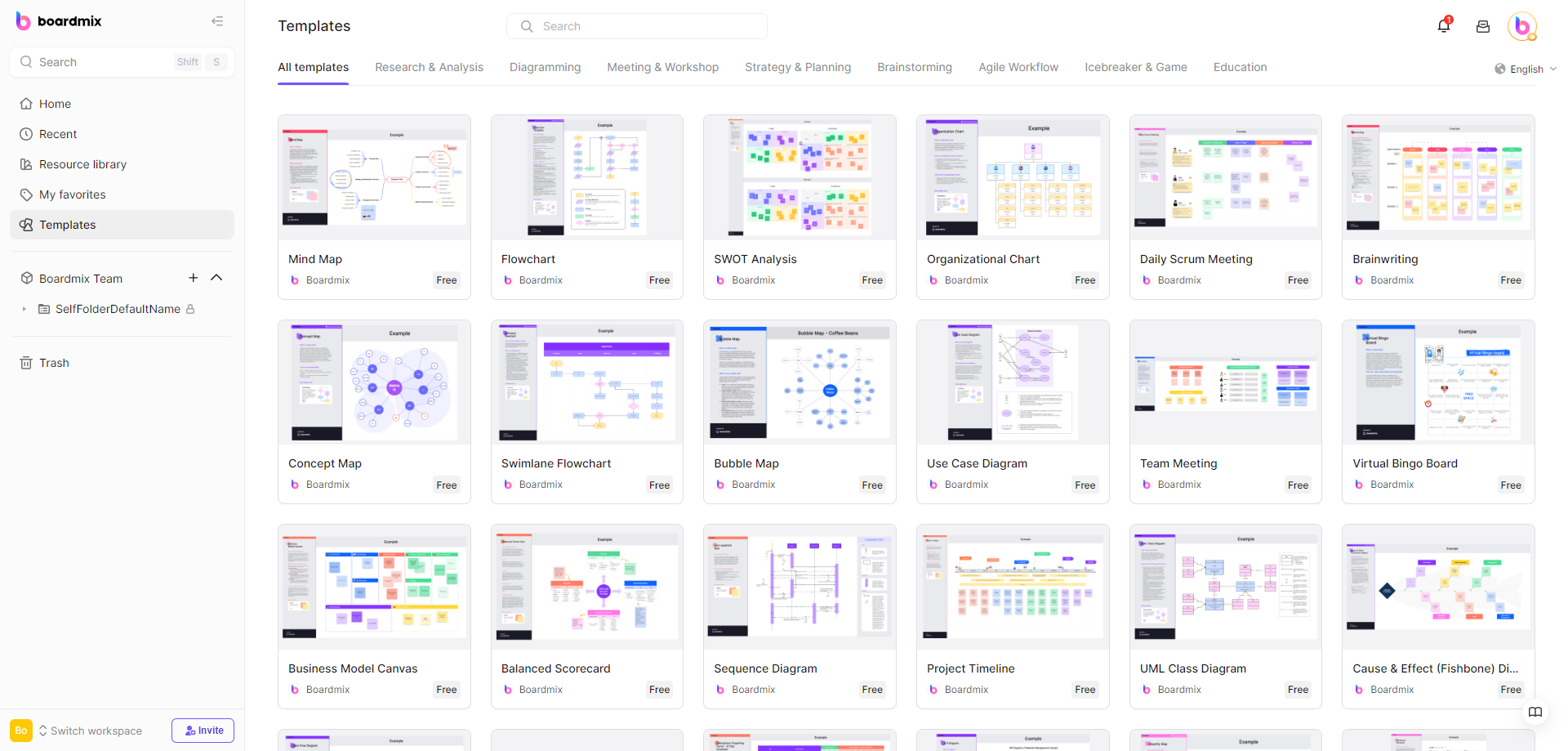
Optimize distribution channels: Boardmix allows marketers to use diverse templates to develop and optimize their distribution channel plans.
Promotions
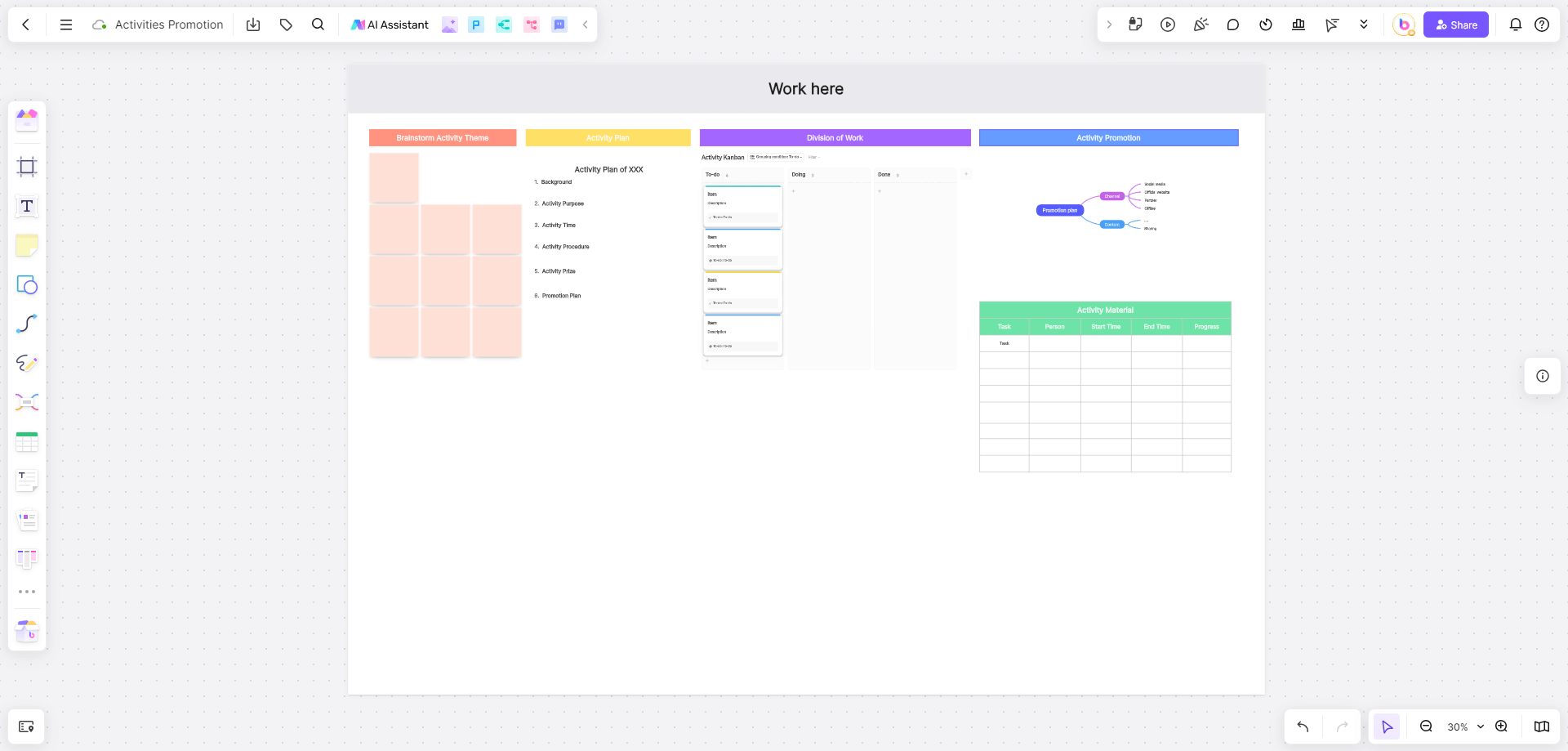
Planning Promotions: Ideal for planning and executing promotions, Boardmix simplifies the campaign planning process by providing marketers with a variety of program templates.
People
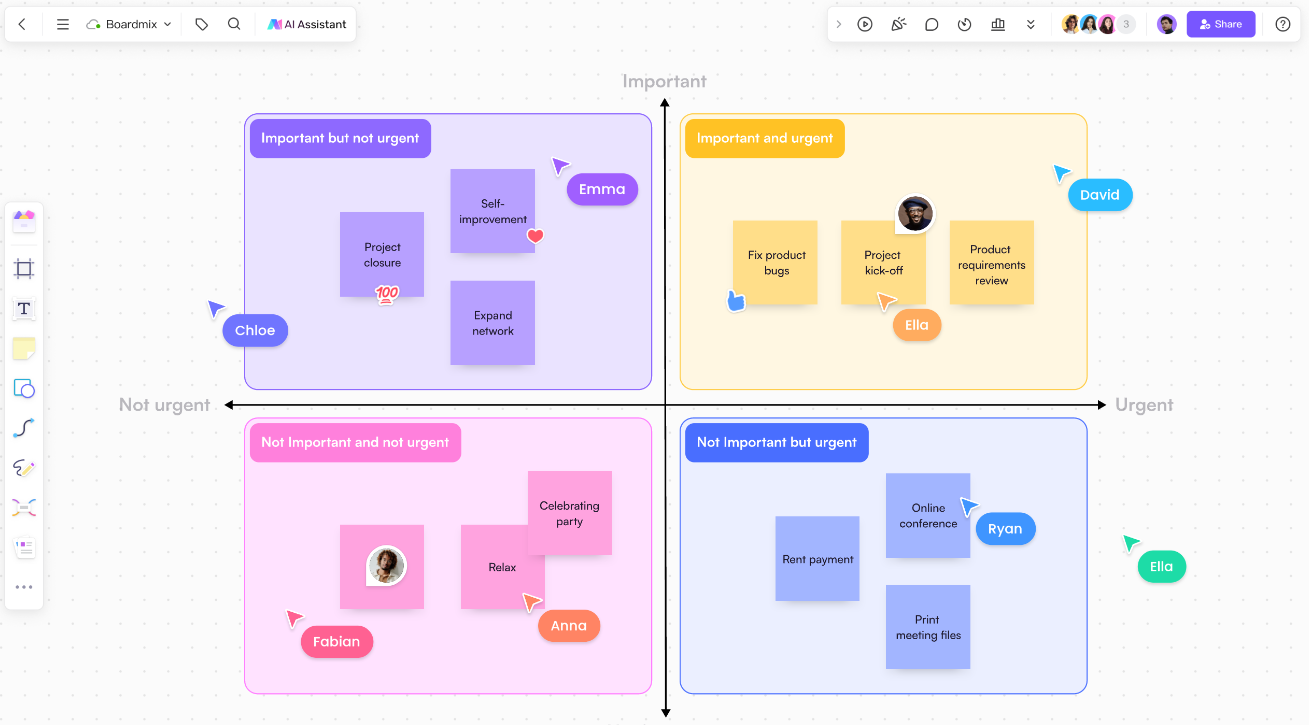
Enhance Teamwork: People are a key component of the 7Ps and Boardmix excels at enhancing teamwork.
Process
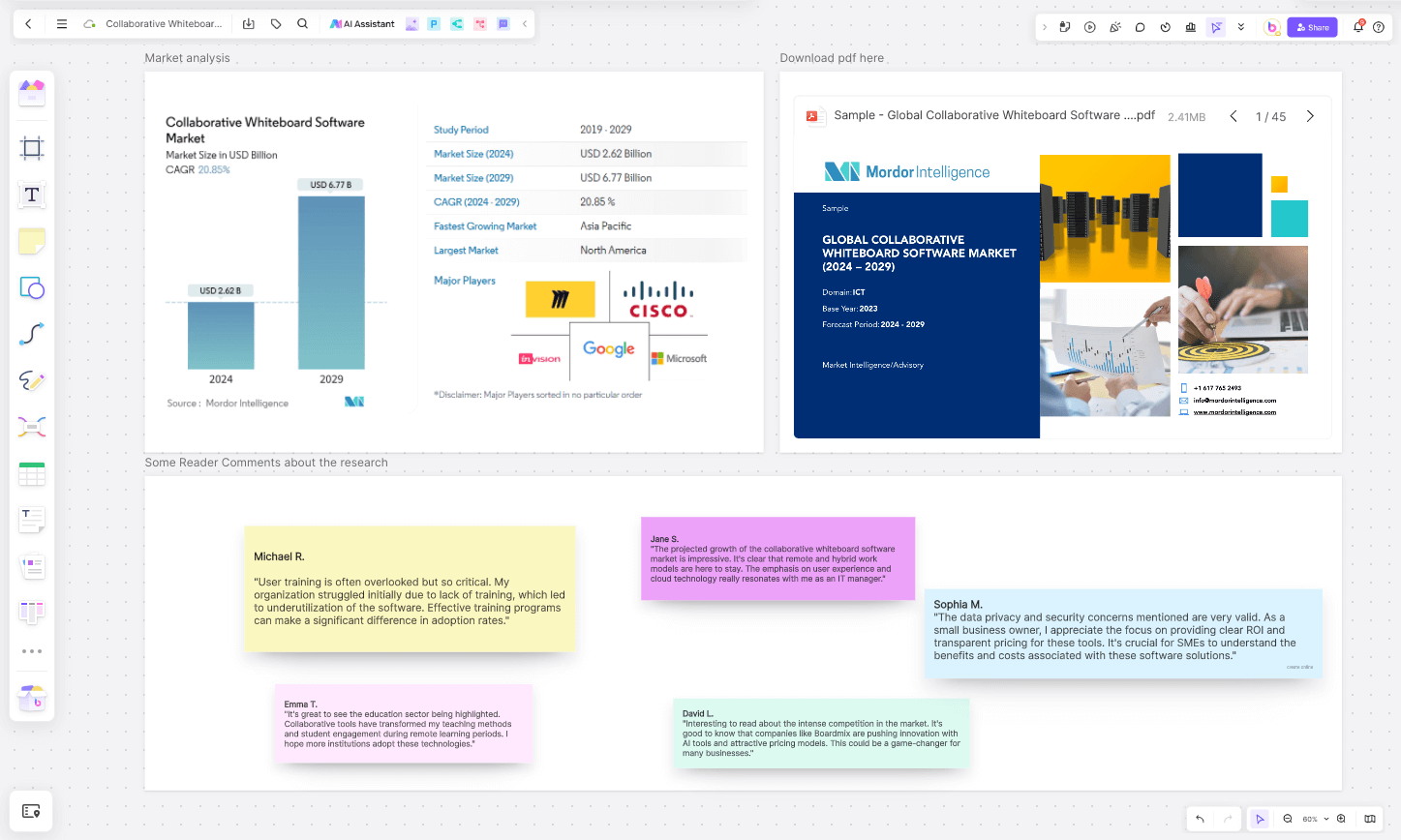
Streamline marketing processes: Boardmix can be used to visualize and optimize marketing processes, and it shows team members' ideas and suggestions in real time.
Physical Evidence
Create and share tangible evidence: in the digital age, physical evidence also includes online content and customer testimonials, and Boardmix's versioning capabilities make the marketing process traceable.
2. HubSpot

HubSpot is an all-in-one marketing software that helps businesses attract, engage, and delight customers. It offers tools for content management, social media marketing, and customer relationship management (CRM). By using HubSpot, businesses can optimize their promotion strategies and enhance their customer interactions.
3. Canva

Canva is a user-friendly design tool that allows businesses to create stunning visual content for their marketing campaigns. Whether it's social media graphics, presentations, or promotional materials, Canva makes it easy to produce professional-quality designs that enhance the physical evidence of your marketing efforts.
4. Google Analytics

Google Analytics is an essential tool for tracking and analyzing website traffic. It provides valuable insights into customer behavior, helping businesses refine their marketing strategies and optimize their online presence. By understanding how customers interact with your website, you can make data-driven decisions to improve your marketing performance.
5. Mailchimp
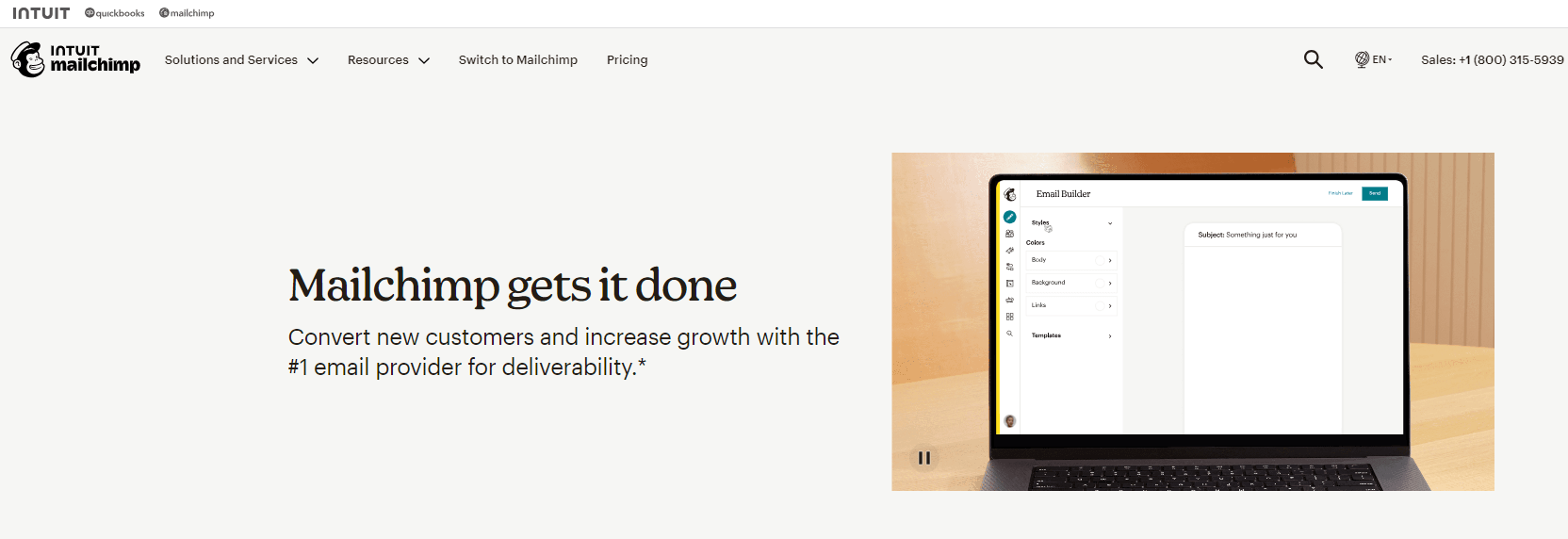
Mailchimp is a powerful email marketing platform that enables businesses to create, send, and analyze email campaigns. It offers automation features, segmentation tools, and analytics to help businesses reach their target audience effectively and drive conversions.
6. Hootsuite

Hootsuite is a social media management tool that allows businesses to schedule and analyze their social media posts. By using Hootsuite, businesses can streamline their social media efforts, engage with their audience more effectively, and measure the impact of their promotional activities.
7. Salesforce

Salesforce is a leading CRM platform that helps businesses manage their customer relationships and sales processes. It provides tools for lead management, sales forecasting, and customer support, enabling businesses to optimize their people and process elements.
8. SEMrush

SEMrush is a comprehensive digital marketing tool that offers features for SEO, content marketing, and competitive research. By using SEMrush, businesses can enhance their online visibility, improve their search engine rankings, and gain insights into their competitors' strategies.
9. Trello

Trello is a project management tool that helps businesses organize and manage their marketing projects. It offers customizable boards, lists, and cards to streamline workflows and enhance team collaboration. By using Trello, businesses can optimize their processes and ensure timely delivery of their marketing initiatives.
10. Shopify

Shopify is an e-commerce platform that enables businesses to create and manage their online stores. It offers tools for product management, payment processing, and marketing, making it easier for businesses to sell their products and reach a global audience.
Conclusion
Understanding what are the 7 Ps of marketing and how to integrate them into your marketing strategy is crucial for business success. By leveraging digital tools like Boardmix and the other software solutions mentioned, businesses can adapt the 7 Ps of marketing to the digital age and stay ahead of the competition. Remember, the key to a winning marketing strategy lies in the synergy and integration of these elements, ensuring that all aspects of your marketing efforts align with your overall business goals.




